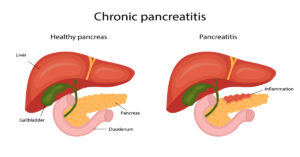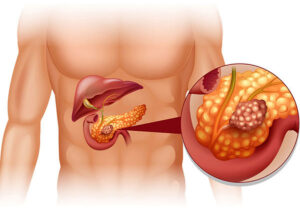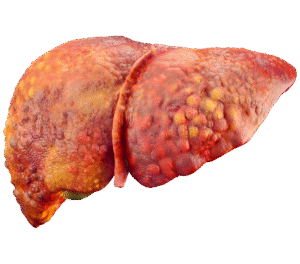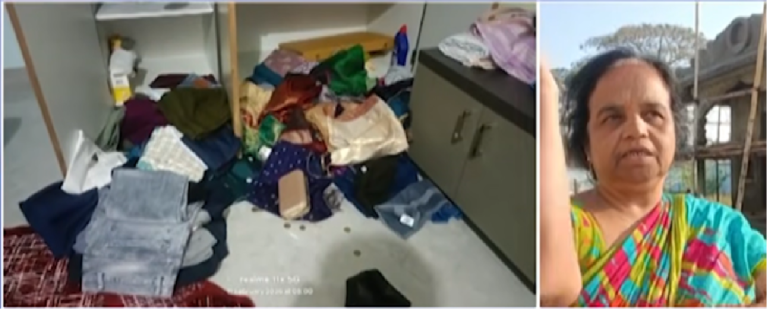Pancreas Infection: Understanding Causes, Symptoms, and Treatment
The pancreas is a very important organ in the human body. It is located behind the stomach and helps in two main ways. First, it makes enzymes that help to digest food. Second, it produces insulin, which controls the sugar level in the blood. Sometimes, the pancreas can get infected or inflamed. This condition is called pancreatitis. A pancreas infection is a serious health issue and needs proper care. In this article, i will explain everything about pancreas infections.

A pancreas infection is a condition in which harmful bacteria or germs enter the pancreas and cause swelling, pain, and other problems. This infection is often linked with a condition called acute pancreatitis. When pancreatitis is not treated in time or becomes severe, it can lead to infection in the pancreas.
Types of Pancreatitis
There are two main types of pancreatitis
1. Acute Pancreatitis
This is a sudden inflammation of the pancreas. It can be mild or very serious. Some cases get better in a few days, but others can lead to infection and other problems.
2. Chronic Pancreatitis
This is a long-term condition where the pancreas becomes damaged over time. It does not heal completely. Over time, chronic pancreatitis can also lead to infection or even stop the pancreas from working properly.
Causes of Pancreas Infection
There are many causes of pancreas infection. Some of the common ones include
1. Gallstones
Gallstones are small stones that form in the gallbladder. Sometimes they block the tube that connects the gallbladder and pancreas. This blockage can lead to inflammation and infection.
2. Alcohol Abuse
Drinking too much alcohol over a long period can damage the pancreas. It is one of the most common reasons for both acute and chronic pancreatitis.
3. High Levels of Fat in the Blood
This is also known as high triglycerides. It can lead to inflammation of the pancreas.
4. Injury or Surgery
Any injury to the abdomen or surgeries in the stomach area can sometimes lead to a pancreas infection.
5. Certain Medications or Infections
Some medicines or viral infections may also trigger pancreatitis and infection.

Symptoms of Pancreas Infection
The symptoms of a pancreas infection may vary depending on how serious the infection is. Common symptoms include
-
Severe pain in the upper belly area
-
Pain that goes to the back
-
Fever and chills
-
Swollen and tender abdomen
-
Nausea and vomiting
-
Rapid heartbeat
-
Loss of appetite
-
Fatigue or weakness
In serious cases, the infection can spread to other parts of the body and lead to sepsis, which is a life-threatening condition.
Diagnosis of Pancreas Infection
Doctors use different tests to find out if there is an infection in the pancreas. These tests include
1. Blood Tests
These tests help to check the levels of enzymes made by the pancreas. If they are too high, it may show that the pancreas is inflamed.
2. Imaging Tests
Tests like CT scan, MRI, and ultrasound help the doctor see inside the body. They can check for swelling, damage, or infected areas.
3. Stool Tests
These tests check how well the pancreas is helping with digestion.
4. Biopsy or Drainage
In some cases, the doctor may take a sample of fluid or tissue to check for infection.
Treatment of Pancreas Infection
Treatment for a pancreas infection depends on how serious it is. In mild cases, treatment can be done in a hospital with fluids, pain relief, and rest. In more serious cases, special care is needed.
1. Hospital Care
Most patients with a pancreas infection need to stay in the hospital. Doctors give fluids through a vein to keep the body hydrated. They also give painkillers to reduce the pain.
2. Antibiotics
If the pancreas is infected, antibiotics are given to fight the bacteria. These can be given through a vein or as pills.
3. Draining the Infection
If there is a pocket of infected fluid in the pancreas, doctors may need to drain it. This is done with a needle or a small tube, sometimes using a camera to guide them.
4. Surgery
In very serious cases, surgery may be needed to remove damaged or infected tissue from the pancreas.
5. Feeding Support
Since the pancreas helps digest food, people with this infection may have trouble eating. Doctors may give special nutrition through a tube or through the vein until the pancreas heals.
Lifestyle Changes After Recovery
Once a person recovers from a pancreas infection, it is important to take steps to prevent it from happening again. These include
-
Avoiding alcohol completely
-
Eating a healthy low-fat diet
-
Drinking enough water
-
Taking medicines properly as prescribed
-
Managing blood sugar and cholesterol levels
Doctors also suggest regular check-ups to make sure the pancreas is healing well.
Complications from Pancreas Infection
If a pancreas infection is not treated in time, it can cause serious problems such as
-
Pancreatic abscess which is a pocket of pus that may need surgery
-
Sepsis which is a dangerous spread of infection in the body
-
Organ failure such as problems with the heart, lungs, or kidneys
-
Diabetes due to damage to insulin-producing cells
-
Malnutrition if the body is not able to digest food properly
When to See a Doctor
If someone has severe stomach pain, fever, vomiting, and feels very sick, they should see a doctor immediately. Early treatment can help prevent serious damage.






